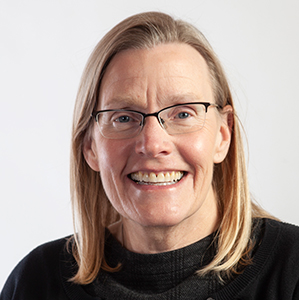In this Article

Job and Education Fast Facts
A gerontologist studies the physical, cognitive, social, emotional, psychological, and societal effects of the aging process on the human body.
The field is often mistaken for geriatrics, which focuses on the various medical phenomena associated with the aging process. Gerontology, however, is multidisciplinary. It takes a more holistic view of the journey people experience as they grow older, often involving a wide variety of related disciplines such as psychology, sociology, economics, public policy, and marketing.
The Need for Gerontologists
As the large demographic of “baby boomers” in the United States ages, the need for new healthcare professionals with gerontology degrees continues to rise sharply. The latest data from U.S. Census Bureau found that the number of people in the U.S. aged 65 and older has grown from 3.1 million in 1900 to more than 56 million today. At current growth rates, the Census Bureau predicts that, by 2060, nearly 95 million people will be over 65. Many of these people will benefit from the insight and care that gerontologists can provide.
“Not only are we seeing a growth in the numbers of people over 65, we are also seeing a diverse population of persons aging,” says Julie L. Masters, PhD, a professor and Terry Haney Chair of Gerontology in the Department of Gerontology at the University of Nebraska, Omaha. “The profile of the typical older person from the 1980’s, of an older white, widowed female living in a nursing home, has been replaced with people—women and men—from various cultures and backgrounds living to and beyond 85.”
Gerontology vs. Geriatrics: What’s the Difference?
Gerontology is often confused with the discipline of geriatrics, which covers the same general topics—the care, understanding, and treatment of older people—but distinctly different aspects.
Geriatrics
This field focuses mainly on identifying and treating the physical and medical consequences of aging and common conditions such as vision and hearing loss, cognitive functions, dementia and Alzheimer’s disease, Parkinson’s disease, heart and lung function, and other physical ailments that older adults often experience. Geriatric care generally involves pharmacological treatments and extending the lifespans of aging adults.
Gerontology
Gerontology takes a more multidisciplinary view of elder care, focusing not only on the physical effects of the natural aging process but also on social and psychological issues that arise. Gerontologists are concerned with the root causes of bodily changes from middle age through the end of life, and are often involved in societal changes, economics, public health policy, and administrative treatment of older persons to help increase their longevity and quality of life. The field also includes late-stage care for patients near death, as well as therapy for grieving loved ones.
What do Gerontologists Do?
Because the gerontological field is so broad, a gerontologist can develop a career in a number of professions.
A degree in gerontology can lead to jobs in:
In recent years, Masters says, there has been a greater emphasis on supporting people with Alzheimer’s disease and other forms of dementia and their families. In the last year, COVID-19’s nationwide devastation of the nursing home industry and the restrictions tied to the pandemic are playing a role in the growing demand for gerontologists.
While the opportunities in gerontology are numerous, it is not a field of study that suits everybody. To excel in gerontology, those entering the field must enjoy being around and working with older adults. They must also pay close attention to their clients’ needs and possess the ability to understand the cognitive and physical limitations that many older people have.
Where Do Gerontologists Work?
Gerontologists can be found in a variety of fields that have aging adults or family caregivers as their main clients, says Masters. “Graduates of gerontology programs are being hired to work in positions such as case management that used to be restricted to persons with degrees in social work or nursing in the past,” she adds.
Some of the areas where gerontologists tend to work include:
In recent years, the need for gerontologists has spread to some more unusual sectors, such as banking, business, and education, where many companies are learning how to cater to a larger demographic of aging customers. The emerging field of segmented marketing that specifically targets an aging demographic has also been on the rise, which may appeal to those looking for business careers in the healthcare field.
“This is an unprecedented time in history,” Masters says. “The opportunity for research, service, and education is boundless. Gerontology is a hot field that will stay hot for the next several decades.”
Will I See Patients?
Most of the jobs that require a gerontology degree are in the administrative, customer service, and marketing sectors, so it is unlikely there will be much contact with actual patients. However, there are some roles that call for more direct involvement with aging people, especially in the field of home healthcare assistance, adult living communities, and hospice care for older adults. As more people live longer, the call for gerontology patient care is likely to rise as well, Masters says.
How to Become a Gerontologist
A gerontologist is someone who has master’s degree in gerontology.
A person could also seek a certificate or associate degree in gerontology and work with older adults, but you wouldn’t hold the title of “gerontologist.” People with undergraduate or certificate-level education are referred to as “aging specialists,” Masters says.
To obtain an associate degree in gerontology, students need about two years of instruction to learn the basics of the biological, psychological, and sociological factors in the aging process. This degree will often prepare you for work as a home and personal care aid, a medical assistant, or a social/human service assistant.
A bachelor’s degree requires four years of study, often including an internship or practicum that can lead to entry-level or mid-level positions as social or community service managers, social workers, community health workers, or certified occupational therapy assistants.
“Someone with a bachelor’s degree may have a job as marketing coordinator, program coordinator, or life enrichment specialist,” Masters says, “(while) a master’s or doctoral-prepared individual may be involved in research, strategic planning, and leadership. Advanced education is intended to prepare people to think at a more complex level.”
Advanced Degree Programs—Gerontology Focus
More advanced postgraduate degrees tend to lead to higher-salaried positions. Here are a few examples, and what they entail:
Master’s Degree in Gerontology
Doctoral Degree in Gerontology
Degree Programs—Nursing or Business Focus
There are also a wide range of nursing and business degrees available that offer a concentration in gerontology. These are particularly useful for people wishing to transfer into gerontology work.
Bachelor of Human Services-Gerontology Concentration
Bachelor of Healthcare Management, Specialization in Gerontology Management
Adult-Gerontology Nurse Practitioner (AGNP) (Master’s)
Bridge Programs
Bridge programs are designed to “bridge the gap” and help you step into a new career field—or advance in your current industry. Each program has its own prerequisites and requirements, but they are for students who hold a bachelor’s degree in a field related to their intended bridge program focus.
BSN-to-MSN Master of Science Degree in Gerontology
Certificate Programs
Many gerontology programs will offer a certificate for 15 to 18 credit hours, Masters says, which “can be focused solely on gerontology or it can have a niche approach.” For example, some schools offer graduate certificates in gerontology that can be combined with other disciplines, such as senior housing, management, or interior design.
“A specialty certificate is ideal for someone who may already possess a degree or degrees and is wanting to further enhance an understanding about aging,” Masters adds. “Certificates are also a nice way for people to explore the topic of aging before moving into a degree program.”
Already Working as a Gerontologist and Want to Advance Your Degree?
If you are already working in the gerontology world and would like to pursue an advanced degree, Maters says doing your homework in advance is key to finding the ideal program that is in line with your career goals. Here are some tips and questions to ask that may clarify how you want to conduct your search for the right school:
How long has the program been in existence? It’s important to choose a school and program that is accredited and has an established track record of excellence.
Who is on the faculty? Look for courses that are taught by faculty who are working professionals in the fields in which they teach. This will help ensure that content is current and highly applicable.
Determine the type of research and curriculum the school is offering. What areas will you study and what type of curriculum will best prepare you for your preferred specialty?
What types of courses do they offer? Sometimes programs will say they are offering a “gerontology path” (e.g., minor or certificate), but there are few actual courses that make up the curriculum.
Does the school offer undergraduate and graduate programs designed to meet the needs of busy working adults? This includes bridge master’s programs, post-grad certificates, and other specialty degrees related to the field.
Does the school have alternative ways to earn credit? Ask the school if you can apply previous credits or experience to accelerate the time it takes to earn your degree.
Can I Take Classes Online?
Nearly all gerontology degree programs offer online courses; either fully online or a hybrid of online and on-campus study. In the hybrid model, most students complete their work online but meet periodically on campus. Fully online courses are individually paced, giving students the freedom to communicate with the instructor through video or email.
Some online courses, however, include stipulations about work experience to present evidence that students have the skills to perform in the workplace. Consult your school for requirements for internship matching or other work-study programs—many of which the schools can provide—to make you more in demand for future jobs.
Certifications and Licensure
Generally, most jobs in the gerontology world do not require a special certification. However, those pursuing gerontology in a medical setting may be required to have additional credentials to do their jobs, Masters says. Many of these certifications will depend on the position and location of the service. For example, a nurse, counselor, or therapist will need to have the necessary credentials and licenses to practice in a given state, she adds.
The National Association for Professional Gerontologists provides voluntary certification demonstrating a core body of gerontological knowledge. This includes a broad background in the social, psychological, and physical/biological aspects of aging, including theoretical concepts. The certification also represents a student’s knowledge of practice concepts in working with older adults, including ethical issues, and mastery of gerontology skills and competencies.
Median Annual Salary
While the U.S. Bureau of Labor Statistics (BLS) does not list salary data specifically for gerontological work, the salaries for the profession fall under the category of “medical scientists.” Here are median annual wages by state:
The job outlook through 2032 predicts growth in this field of 9.8%, which is much faster than the 5% average overall job growth over the same period.
Masters says the salary that gerontology degree-earners can expect will depend mostly on the position, the education, and the employer. “A non-profit will pay less than a for-profit company with more resources,” she says.
Career Outlook
The outlook for gerontology as a profession has never been rosier. The expected growth in the population of older Americans will put more pressure on corporations and municipalities to handle the unique needs of older clients.
Some ways to get a leg up on what is expected to be growing competition in the gerontology field will be participation in practicums or internships. “These experiences give students a glimpse of what it is like to work in a given industry or field,” Masters says. Such hands-on experience is something employers will take into account when determining if an applicant has the necessary background to be considered for a position.
“The job prospects are tremendous,” Masters says. “We are seeing more employers sharing job postings with us as they know graduates have the passion, the interest, and the ability to make a contribution from day one to any organization whose business is focused on the aging adult.”
Professional Resources
The best way to stay connected in this field is to build contacts with gerontologists on LinkedIn or Facebook, network with professors, and meet other professionals at gerontology clinicals and internships. Here is a list of associations, blogs, and podcasts that can help you establish and maintain ties with those in the gerontology field:
- American Society on Aging:
- A diverse group that provides research and delivers information to aging adults to help improve their quality of life.
- The Gerontological Society of America:
- The oldest and largest (5,500 members) interdisciplinary organization devoted to research, education, and practice in the field of aging.
- National Association of Professional Gerontologists:
- An organization to promote and credential the education of professionals in the field of gerontology.
- National Council on Aging:
- Delivers resources, tools, best practices, and advocacy of our nation’s needs to ensure that every person can age with health and financial security.

Written and reported by:
Randy Woods
Contributing Writer

With professional insight from:
Julie L. Masters, PhD
Professor; Terry Haney Chair of Gerontology, Department of Gerontology, University of Nebraska Omaha